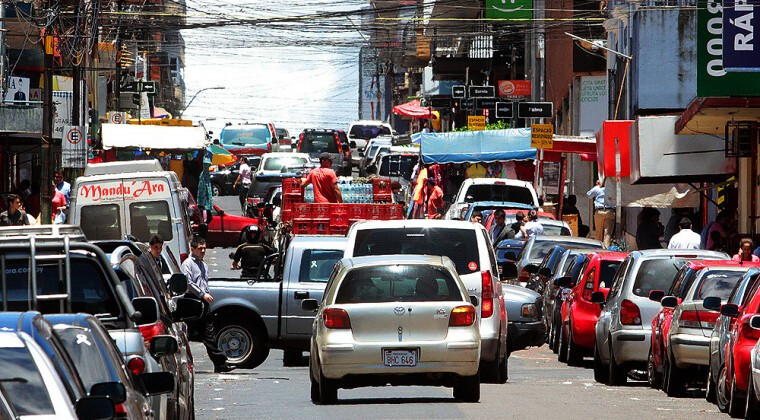
Traffic congestion in Asunción has been a long-standing problem. According to a 2016 MOPC study, over 1.3 million people commute into Asunción daily. This "pendulum movement" of commuters from the bedroom communities surrounding the capital is one of the main causes of congestion.
However, this isn't the only cause. Policies that encourage the use of private vehicles, especially cars, have significantly increased the space each individual occupies on the road. Instead of reducing the space each person needs through improved and expanded public transportation services, Asunción has focused solely on highway expansion. It's been known for decades that this approach is counterproductive to solving traffic congestion. As the 20th-century American urban planner Lewis Mumford once said, "Adding more lanes to highways to solve traffic congestion is like loosening your belt to cure obesity."
Shocking Travel Speed: Modern Asunción Slower Than Horse Carriages
If you still find it hard to believe, here's a startling fact: the average peak-hour travel speed in Asunción and its surrounding areas is less than 10.65 km/h. In contrast, according to Peter Ackroyd's book "London: The Biography," the average travel speed using horse carriages in late 19th-century London was approximately 19 km/h. This means Asunción is currently moving at less than half the speed London did before the widespread use of automobiles.
This average travel speed can be easily verified. If you set a destination from downtown Asunción (Plaza de la Democracia) to Fernando de la Mora (intersection of Mariscal López Avenue and Madame Lynch Avenue) on Google Maps at 6 PM from Monday to Friday, the 9.5 km distance typically takes over an hour, resulting in an average speed of only 9.5 km/h. This time is similar to what it would take to travel by horse carriage.
The Core of the Problem: Absence of a Public Transportation System
This phenomenon suggests that Asunción's urban planning and transportation policies have fundamental flaws. A private-vehicle-centric transportation system inevitably leads to insufficient road space and congestion. This cannot be solved simply by widening or building new roads; in fact, it only attracts more vehicles, exacerbating the vicious cycle.
Transportation experts universally agree that the key to solving modern urban traffic problems lies in building efficient public transportation systems. Public transportation can carry more people in less space, maximizing road efficiency. For example, an optimized bus system can transport over 10,000 people within the same road and time, whereas private cars can only transport about 1,600 people.
Asunción's Urgent Task: Building an Integrated Public Transportation System
Evidently, the implementation of a satisfactory public transportation system with frequent and planned routes, safe stops, well-maintained vehicles, and efficient transfer options would have a significant and positive impact on citizens' travel times. The establishment of an integrated public transportation system is an urgent task for the Asunción metropolitan area that can no longer be avoided. Efficiently transporting citizens is the best option until the capital's housing and population density issues are resolved.
Asunción should be more welcoming to those who wish to reside there and more proactive in controlling the uncontrolled rise in housing prices. However, that is a topic to be discussed in more detail later. For now, it's time to confront the reality of modern Asunción's traffic, which is slower than 19th-century London carriages, and to devise fundamental solutions. For sustainable urban development, it's crucial to move away from a private-vehicle-centric mindset and focus all efforts on building an efficient and comprehensive public transportation system. Otherwise, Asunción will continue to struggle to shake off the stigma of being a "stalled city."
[Copyright (c) Global Economic Times. All Rights Reserved.]




























